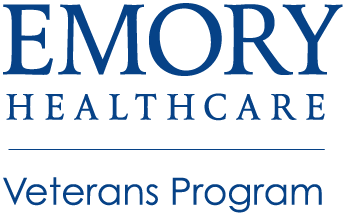
Frequently Asked Questions
Give Here to Transform Lives
Join us in providing no-cost, life-changing mental health care for post-9/11 veterans and service members living with post-traumatic stress, traumatic brain injury, military sexual trauma, anxiety, and depression.
Accelerated Treatment Program
At the Emory Healthcare Veterans Program, we understand that taking the first step toward mental health treatment can come with a lot of questions. Below, you'll find responses to the most common questions about eligibility, treatment, costs, and more. If you don't see your question here, please don't hesitate to reach out.
-
I’m a post-9/11 veteran and I have health insurance, but Emory Healthcare does not accept it. How can I get treated through Emory Healthcare Veterans Program?
-
I don’t live in Atlanta. Can I still be treated through Emory Healthcare Veterans Program?
-
I would like to make a donation to Emory Healthcare Veterans Program. How do I do that?
-
If I get treatment through Emory Healthcare Veterans Program, do you share that information with anyone?
-
How long does the program last?
-
Who can receive treatment through Emory Healthcare Veterans Program?
-
If I live in the Metro Atlanta area, can I participate in the Accelerated Brain Health Program?
-
How can I find out if I’m eligible for treatment?
-
If I am accepted into Emory Healthcare Veterans Program for treatment, how should I prepare?
-
I already received treatment for my condition from another provider. How can I be referred to Emory Healthcare Veterans Program?
-
How do I stay informed with Emory Healthcare Veterans Program news, updates, and more?
Frequently Asked Questions about the Accelerated Brain Health Program via Telehealth
-
What is telehealth?
-
Where is telehealth available?
-
What should I expect during my virtual visits?
-
How do I know my information is secure?
-
I have a traumatic brain injury (TBI). Can I use telehealth for treatment?
-
What have program graduates said about virtual therapy sessions?
-
What if I don't have a private area for therapy sessions?
-

